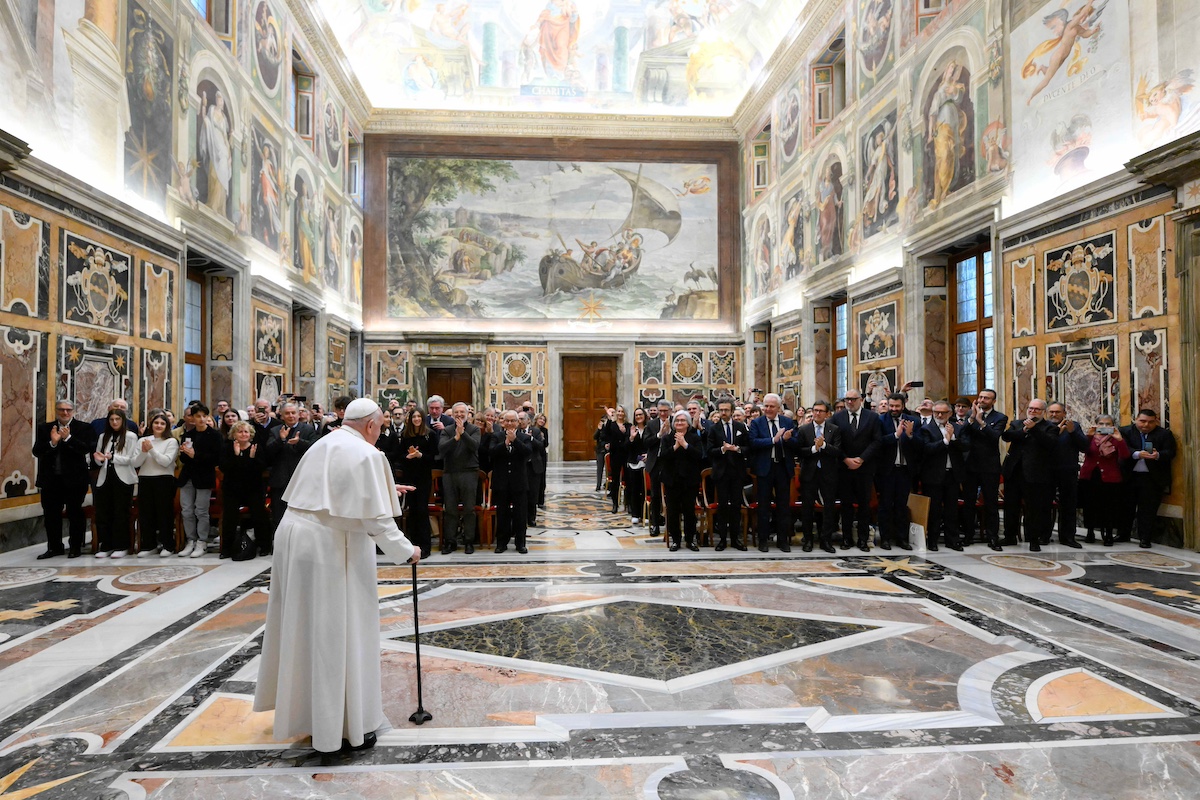By Carol Glatz
VATICAN CITY (CNS) — Pope Francis praised the legacy of an Italian priest who looked for ways the Catholic Church could make sure the poor were not left further behind in the world.
“And with wisdom and love,” the late Father Lorenzo Milani found “the answer in education, through his model of schooling, which is putting knowledge at the service of those who are considered the last by others, but first for the Gospel and for him,” the pope said.
During an audience at the Vatican Jan. 22, the pope met with members of a national committee in charge of last year’s celebrations and initiatives marking the 100th anniversary of the birth of Father Milani.
Born in an agnostic family in the central region of Tuscany in 1923, he felt called to the priesthood after meeting and befriending Father Raffaele Bensi. He served as a parish priest in a small town of poor and often illiterate farmers and factory workers and created a school for the children. He was also a vocal defender of conscientious objection to war.
He was later sent to an even more secluded part of Tuscany where he continued his innovative methods of education at a school he founded whose motto was the English phrase, “I Care.”
However, the progressive tone of the young priest’s book “Esperienze pastorali” (“Pastoral Experiences”), published in 1958, scandalized many and the then-Congregation for the Doctrine of the Faith judged the book “inopportune,” ordering it “withdrawn from commerce and not to be reprinted or translated.”
Under Pope Francis, the congregation lifted the restrictions on the book. The pope said Father Milani was not a priest to be rehabilitated, but “a believer enamored of the church, even if a flawed one.” He visited his grave in 2017 and said the church recognizes his life was “an exemplary way of serving the Gospel, the poor and the church itself.”
In his speech to the national committee, the pope said that Father Milani “lived to the full the Gospel beatitudes of poverty and humility, leaving behind his bourgeois privileges, his wealth, his comforts, his elite culture, to become poor among the poor.”
Father Milani was a “restless and disquieting priest, faithful to the Lord and to his church,” and has left behind “his demanding legacy,” the pope said. The priest used the schoolroom to help “to restore dignity to the least, respect, entitlement to rights and citizenship, but above all the recognition of the sonship of God, which includes all of us.” He saw education as the answer to the question, “How can the church be meaningful and make an impact with her message so that the poor do not fall further and further behind.”
“He invites us not to remain indifferent, to interpret reality, to identify the new poor and the new forms of poverty; he invites us instead to approach all those who are excluded and to take them to heart. Every Christian should play his or her part in this,” the pope said.







